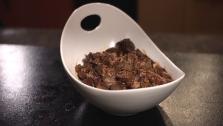6 Essentials For Any School Field Trip
Going on a school field trip is exciting. However, to make the most of your trip, you should make sure kids have all the right things they need on hand. Instructors or teachers should offer students a list of items they should bring along.
When they know their children are prepared and have all the essentials, parents or anyone responsible for the kids will feel more assured and comfortable about going on a field trip. However, the hard part is knowing what to take with you. Are you packing enough? Too much? Here is a handy list of helpful essentials to put the parents at ease.
1. Protection for the Outdoors
Going on a school field trip means being constantly exposed to the outdoors. Though it can be a pleasant experience, things can go downhill if you don’t have protective items to combat outside elements and hazards like the sun, bugs, etc.
For a school field trip, ensure the children pack essential items like sunscreen, sunglasses, insect repellents (preferably wipes), baseball caps or visors, etc. Even if you don’t think they will need any of these items, it is always better to be safe than sorry.
2. Portable Snacks
Have the children pack drinks and something to munch on. Apples, trail mix, pretzels, fresh veggies, and granola bars are healthy snacks that require little to no preparation. Water, juices, and sports drinks are good options as drinks. Depending on how long the field trip will last, you might want the children to bring one or two drinks.
Even if lunch or food is provided to the kids on the trip (if not, pack a lunch for an all-day trip), they might get hungry later, especially if they are out of class all day. So, packing something light will help them satisfy their hunger before and after the meal.
3. Prescriptions
Just like having a basic first aid kit is essential for a school field trip, children with prescriptions should carry the medications. Furthermore, if any child has allergies, it is important to know what they are and jot down a list of student allergies with emergency contact information to ensure quick and easy accessibility. It is also essential to make sure the children carry an Epi-Pen with them.
4. Contact Information
Bringing along a list of emergency contact is very important for any school field trip. Ask for at least three contacts for each student, and have them carry this as a laminated card in case of water damage and in a compact size that can be tucked into the backpack sleeve or pocket.
5. Stationary
Have your students bring a pen and a notebook so they can write down things they learn during the school field trip. Also, see if you are allowed to bring a camera to capture the memories. Often, cameras aren’t permitted inside museums or when going to see a play.
Perhaps, teach children about the importance of field trips and how their field notes will help them get good marks. Taking notes is a great way to engrain knowledge, and it also acts as a souvenir.
6. Change of Clothes
If you are going on an overnight school field trip, have the kids pack multiple changes of clothing. Never assume that the parents will know exactly what to pack. So sending a reminder will always be helpful. Even if it is not an overnight school field trip, bringing an extra pair of certain types of clothing items like socks, spare shirts, etc., can help.
You might also want to track the weather forecast to make adjustments to the attire. Encourage kids to bring a sweatshirt or jacket regardless of the weather condition. Sometimes, the indoors can be as chilly as being outdoors due to the air conditioning. If you are going outdoors, consider carrying a pair of gloves, a hat, and even a pair of cool kids’ prescription sunglasses.
Stay Prepared!
When it comes to keeping kids safe during the field trip, this list of essentials can help. Give yourself a head start by thinking about these details, and you will see that planning a field trip is no longer a hard task. After all, it’s always worth the effort to see kids’ faces light up.
Frequent field visits add a varied and real-life dimension to the textbook curriculum. Learning historical events or economic crises in the classroom will never be as exciting as visiting a garden to learn the process of photosynthesis.
Category: Food.Fun.Stuff.









